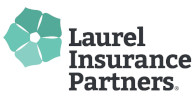President Donald Trump on Thursday unveiled a plan to overhaul how Medicare pays for certain drugs, attacking “foreign freeloaders” that he says have driven up costs in the U.S. The bold move addresses a Trump campaign pledge to lower drug prices, just days before the tightly contested midterm elections in which health care is playing a pivotal role.
Trump outlined the details in a speech at HHS Thursday afternoon, his first address at the health department. The proposal, first reported by POLITICO, still needs to be refined and put through a federal rule-making process.
The proposal would bypass Congress by using a pilot program to test three ways to lower the costs of drugs — including negotiating for some drugs directly administered by doctors to keep them in line with the far lower prices paid in many other countries, where governments often take an active role in setting prices. The proposal applies only to drugs administered in doctors’ offices and outpatient hospital departments — medicines like cancer treatments and injectable treatments for rheumatoid arthritis or eye conditions. It won’t affect most prescriptions purchased by patients at pharmacies.
“For decades other countries have rigged the system so that American patients are charged much more — and in some cases much, much more — for the exact same drug,” Trump said in a brief speech at HHS. “In other words Americans pay more so other countries can play less.”
HHS Secretary Alex Azar on Thursday morning touted a new department report on high U.S. drug prices that found Medicare often pays nearly twice as much as countries like France and Japan to use the same drugs. The Trump administration says that Medicare could save more than $17 billion over five years, with the cost of some drugs dropping by as much as 30 percent.
The administration is bracing for blowback, said one official, noting that hospitals and doctors — and of course the drug companies — all have reason to be unhappy about a plan that will cost much of the health sector money. The drug industry and its allies have lots of lobbying clout; a less ambitious effort by the Obama administration to address Medicare Part B prices fizzled in late 2016.
“Nobody’s going to like this,” said the official. “It antagonizes too many people.
PhRMA, the main trade group representing drugmakers, before Trump’s speech expressed “serious concerns” about proposals that could limit patient access to drugs or discourage innovation. The Biotechnology Innovation Organization slammed Trump for embracing price controls used in other countries, predicting the proposal will “severely chill investment in new cures and therapies for America’s seniors.”
Three drug companies — Roche, Amgen and Regeneron — would be particularly hard hit by the move, Wall Street investment analyst Ronny Gal of Bernstein wrote in a note to clients. He analyzed the share of Medicare Part B revenue for the top 20 drugs purchased by the program in 2016. Johnson and Johnson, Bristol-Myers Squibb and Eli Lilly would also be affected, according to the analysis.
Both “Roche and Regeneron are showing the strain,” in the stock market’s reaction Thursday, Gal said.
Despite the threat, Gal said the proposal “should be taken in stride,” due to the drug industry‘s “substantial clout” and the Trump administration’s history of throwing out a “sharp first position and negotiating some of it away.“ But he cautioned the private sector is taking a page from the White House and starting to look at similar cost control ideas.
Trump’s proposal could appeal to patients, who stand to benefit from lower prices, however, as well as Democrats, who have chastised the administration for not using its regulatory power to rein in drug prices, which polls show are a concern of both Republicans and Democrats. Trump predicted Democrats would back the plan.
“We think they will actually come along with us when they see what we’re doing,” Trump said.
